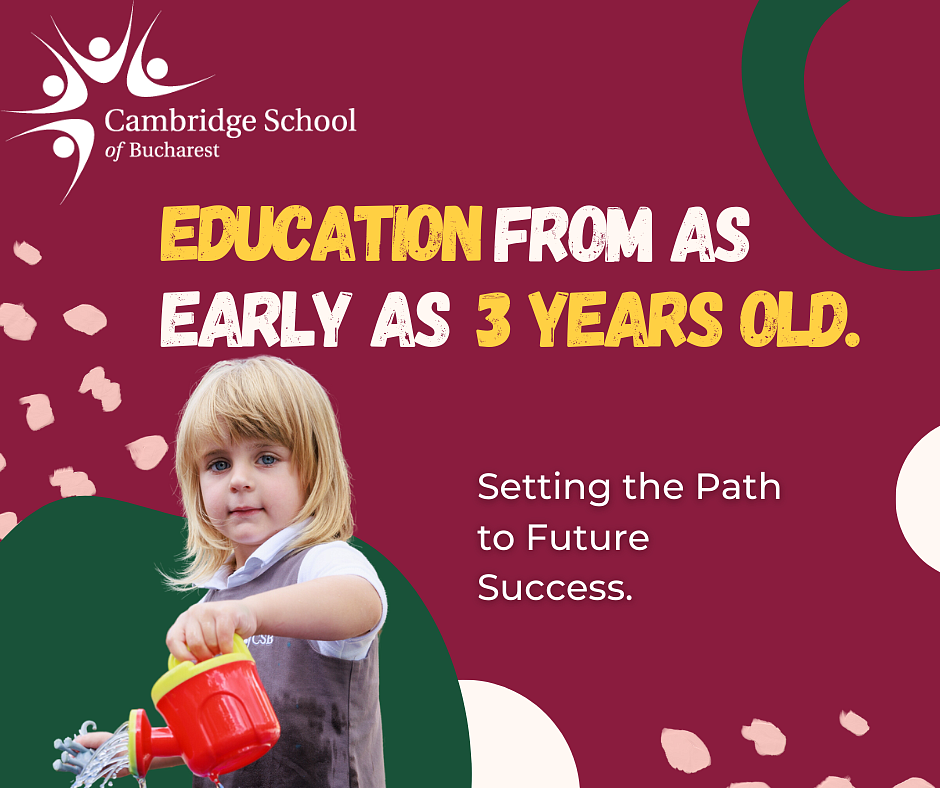(P) Inspiring Education from Three Years Old: Setting the Path to Future Success



At the heart of the EYFS is the vision that each child is unique. Putting children’s language acquisition and communication skills at the forefront of our practice allow educators a glimpse into the thoughts and feelings of each individual. We put emphasis on storytelling and narrative play, and the ability of each and every student to confidently express themselves. Our teachers believe that one of the greatest rewards of their role is to observe the development of students’ spoken English over the course of their earliest school years.
In 2021 The UK government refreshed its guidance for Early Years, Development Matters, to place a heavier emphasis on the development of early communication skills. The aim of EYFS settings is now to embed English vocabulary across the “Seven Areas of Learning and Development”:
At CSB, we build new English vocabulary into our weekly topics. EYFS students benefit from a range of topics that reflect areas of interest. Popular topics range from Our Solar System, to Superheroes, to Castles and Dragons. Within these topics our educators build English communication skills, teaching students new vocabulary, and modelling ways of exploring language through songs, stories, collaborative play, and written activities.
Ms Naomi Springer, Head of EYFS at CSB, has been amazed by the range of innovative strategies for English acquisition employed by the teachers at this year. “I have seen some very impressive role-play areas this year, with teachers creating everything from pirate ships to farmer’s markets at the back of their classrooms, all with the purpose of encouraging students to learn through play, and to use English in ways that feel natural to them.”
Students enjoy topics and themes that teachers have selected to build their knowledge of the world around them. Playing in role-play areas allows students to use new English vocabulary in an imaginative setting, as the teachers guide them with thoughtful prompting and questions. Ms Naomi added, “the children themselves are so absorbed in the moment they often do not notice the deep learning and their own growing use of English as they pretend to be a pirate or farmer.”
CSB teachers have also developed a love of oral storytelling through the creation of beautiful “Small Worlds.” Small Worlds is a space in which students enjoy retelling stories, using familiar characters or creatures to speak, act, or recreate. In this way, our youngest children use phrases from stories through play, making the act of learning a new language seamless and joyful. Our students have a huge bank of classic storybooks to draw from for inspiration. Cambridge School of Bucharest has expanded their library collection over the years, to include the classics of English literature for children. Story sessions take place every single day in each class, providing a moment to cherish for both teacher and child. Here Ana is talking about her favourite dinosaur, “this one flies up and up to the sky.”
The love for reading expands into our literacy programme. The school aims to build a solid foundation in early reading and writing through a rigorous phonics programme. Students who have a strong reading foundation from an early age possess enhanced comprehension skills and are better equipped to engage with a wide range of academic subjects.
"The development of both literacy and numeracy skills prior to Key Stage 4 is critical to success in external examinations. The building blocks laid by our EYFS and Primary colleagues give us an excellent foundation to lead IGCSE and A-Level students to achieve these phenomenal results,” Mr Jonathan Wragg, Head of Secondary.
Phonics is taught daily to students throughout the entire EYFS, starting with the building of children’s auditory memory in the first weeks of Nursery, to the writing of stories and reports at the end of Reception.
The progress our EYFS students achieve is a source of constant delight for our dedicated teaching team, having built their students’ communication skills and love of reading from their earliest days with us. To find out more about how your child can benefit from an outstanding early education, contact our Admissions Team at: admissions@cambridgeschool.ro.
(p) - This article is an advertorial.